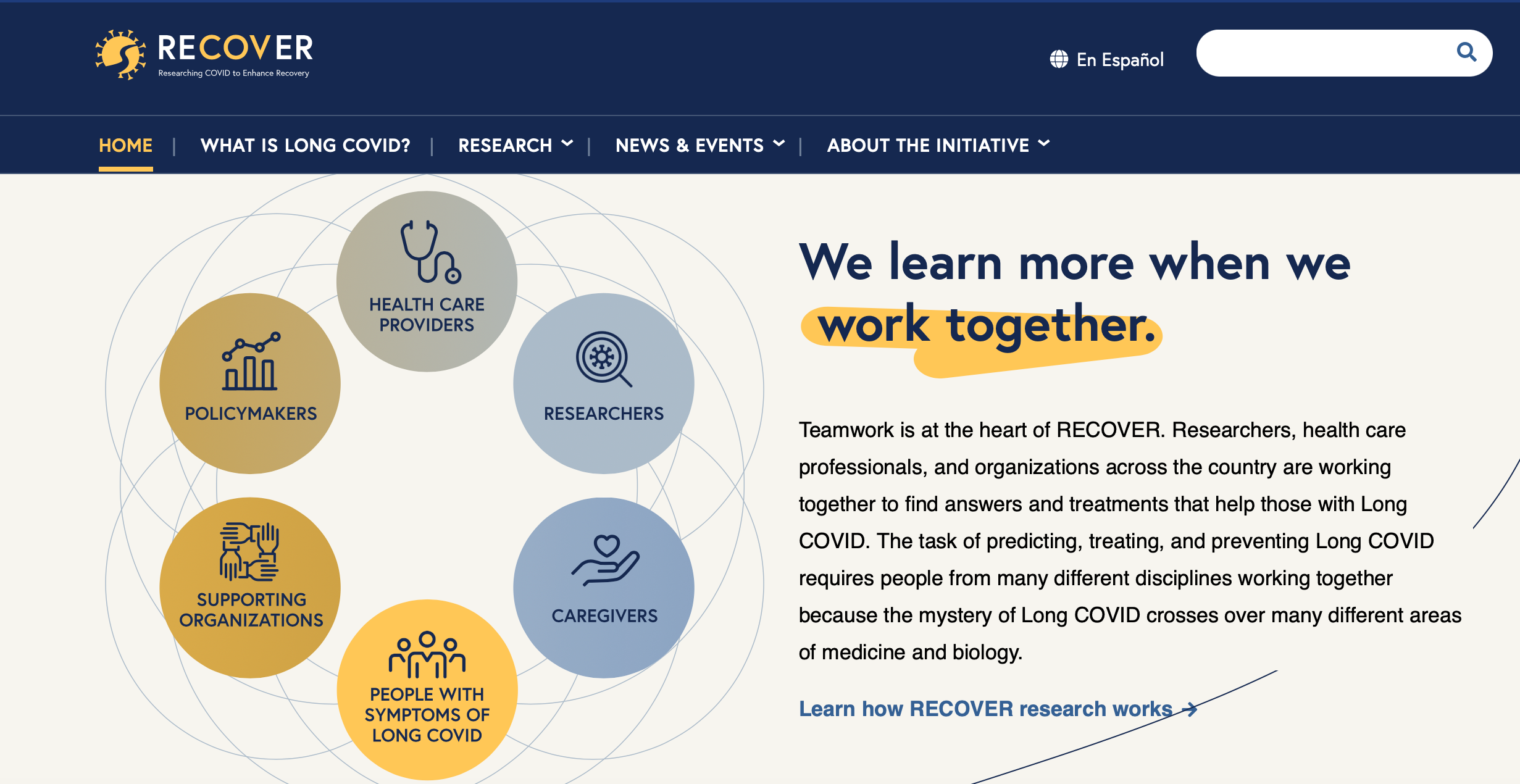A Work in Progress, the SOP Laid the Groundwork for Equitable Inclusion of Community Representatives in Manuscript Development and Publication
This article is a CTSC Special Feature.
Community engagement in research–throughout the research process–is pivotal to producing evidence that is built on principles of diversity, equity, inclusion, and accessibility. Oftentimes you’ll hear of opportunities for community members to be a part of research through volunteerism on community advisory boards or institutional review boards. For community members who want to take a different route, the NIH RECOVER Health Equity Subcommittee sees an opportunity through patient, caregiver, and/or community representative (community representatives) authorship on manuscripts.
In September 2022, the NIH RECOVER Health Equity Subcommittee embarked on an ambitious voyage to craft a pathway for community representatives to achieve a level of authorship on a NIH RECOVER manuscript. Gelise Thomas, who directs the DEIA efforts of the CTSC, proposed a standard operating procedure (SOP), to advance the cause. Partnering with Leah Baucom, Consultant, LCB Industries, LLC, a community representative on the Health Equity Subcommittee, Thomas and Baucom leveraged limited existing research on the topic, lived and professional experience to help inform the content of the SOP.
Thomas emphasized the importance of accessibility and inclusion where contributors could add value in ways that best aligned with their preferred communication style (e.g., in writing or verbally). Baucom championed the importance of creating an environment where all voices would be heard and all people would be respected–regardless of their background. Thomas and Baucom both wanted to be a part of systemic change. After countless calls and meetings with subcommittees and the committee at-large, requests for feedback, and edits, conversations about what constituted a “substantial contribution” (per ICMJE authorship guidelines), the SOP was presented to the National Community Engagement Group to advance the SOP toward implementation.
Praveen Mudumbi, MD, was the primary publications lead for the initiative on the NIH RECOVER side. Dr. Mudumbi said, “I knew the end goal, but was unclear on the pieces getting there.” Dr. Mudumbi explained that initially they needed to ensure that community representatives were attached to each paper, while taking into consideration community representatives’ interest. “We had some preconceived ideas on how it would go, but ended up being more nuanced than expected,” Dr. Mudumbi shared.
Marion Wood, Publications Research Coordinator, RECOVER Clinical Science Core, built the survey that community representatives completed for consideration for matching to manuscripts. Survey fields included: manuscript title, a lay summary, committee, cohort, areas of interest/keywords, and manuscript status to help community representatives determine which manuscripts were of greatest interest. “Ideally, we wanted patient reps to join when the manuscript was in its earliest stage of development,” Wood said.
Key Takeaways
- Build a survey to help manage supply and demand on both the investigator and community representative sides
- Ensure that community representatives give continued feedback on the process (e.g., Are you being asked for minimal input with urgency on a manuscript that is scheduled for submission a week after you’ve found out about it? If so, that’s not how the process is intended to go.)
- Make a slide deck to help explain purpose, impact, hope, expectations for community representatives and investigators
- Centralize submission forms for community representative author request form (e.g., REDCap forms and surveys can help with data cleanliness)
- Consider hosting structured meetings (with the caveat that there is no definitive evidence whether they are beneficial to either audience)
NIH RECOVER (Researching COVID to Enhance Recovery) is a National Institutes of Health initiative to learn about the long-term effects of COVID-19. Learn more about the initiative and research to date on the RECOVER website.


